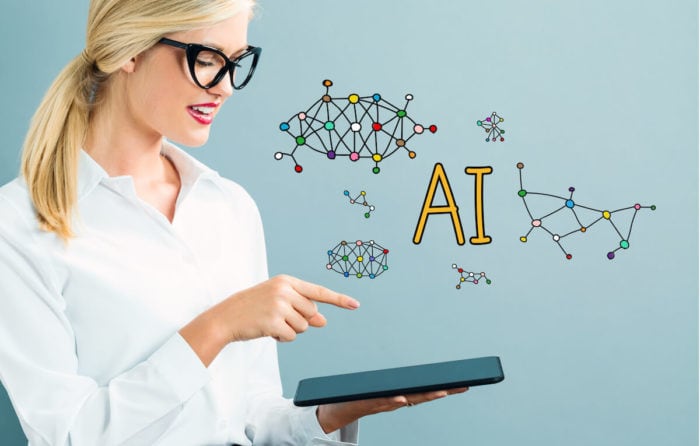Retail Performance Enablement: 3 Ways to Increase Floor Sales
How Smart Employee Training Impacts Productivity
Demographic changes are driving a greater need for increased productivity in almost every sector of the economy today. With falling birth rates and an aging workforce, companies are increasingly looking toward technology – AI-enabled smart employee training – to fill impending gaps in their workforce.
AI, in the broadest sense, is the ability of computers to do things that once only humans could do – think and learn. Machine learning (ML) takes this a step further by training computer programs to improve performance and use workflow technologies to effectively and efficiently turn data into action.
Recent research by McKinsey & Company estimates that automation has the potential to increase productivity on a global scale by 0.8-1.4 percent annually. Automation has been a part of manufacturing for decades. With the rise of AI – the use of computer systems to perform tasks that normally require human intelligence – many of the benefits of automation are now being realized across a much broader range of industries.
Companies moving ahead with smart employee training are quickly realizing its potential
Many companies are already using AI to drive innovation in their industries and to tackle some pretty significant problems:
- Soundhound – one of the world’s most advanced platforms for natural language processing is now applying its voice-recognition capabilities to further enrich its customers’ experience with its development of Houndify – a voice-enabled, conversational interface.
- Zebra Medical Vision envisions a world with less disease and is using AI to make that happen. The company is using its Deep Learning Imaging Analytics platform to develop algorithms capable of detecting several diseases and conditions – many of which can lead to death – allowing patients to receive preventative care and treatment earlier.
- With its advanced forecasting capabilities, Descartes Labs is able to analyze vast satellite imagery data sets to predict crop yields and help prevent food shortages. The company’s machine-learning platform is also giving companies a competitive edge in a growing number of industries including logistics, risk management, finance, and insurance.
AI and ML hold great promise not only for innovation but also for making workflows more efficient. Machine learning relies on workflows – specific tasks sequentially linked together. ML can be used to analyze workflows to find patterns that can be repeated for more consistent results that are more accurate, valuable, reproducible and shareable.
While it is true that AI has the potential to replace human beings in many industries, one of the biggest benefits of these technologies is that they allow us to plug workers into critical workflows at the right time so their efforts have the greatest impact.
For example, electric companies can apply AI technology to identify patterns and other signals that can lead to a power outage. This allows a proactive response in which the workers with the specific skills needed to address the issue can be deployed.

And this is where HR leaders see a huge potential of AI to improve worker training, productivity, and retention. AI enables smart employee training based on individual performance data and, as a result, helps to identify when an employee needs additional targeted learning and mentoring. AI systems have the added advantage of allowing staff to engage in self-directed progress with their training, at their own comfortable pace – making them more productive and much more likely to stay.
To many, AI would seem to be the Holy Grail with its promise of doing more in less time and with fewer workers. However, its potential benefits extend well beyond increased productivity. Companies willing to embrace these new technologies stand to gain a more competitive edge with better decision-making, greater operational efficiency, cost savings, and greater returns on their investment because:
- With the ability to analyze volumes of data for more accurate predictive modeling, AI can result in more informed decisions.
- Volumes of data that used to require hundreds of hours to compile and organize can now be aggregated and complex analytical tasks completed in minutes.
- Automating mundane, repetitive tasks frees workers to spend more time on the kind of creative work that results in innovation and delivers real value.
Aren’t those the goals that every company strives for?
Click here for your demo and see how Rallyware helps enterprises with large sales forces cut expenses, drive revenue, and transform operations.
News and Insights on Workforce Training & Engagement
We’re among top-notch eLearning and business engagement platforms recognized for effective training and talent development, helping to empower distributed workforces
Subscribe
